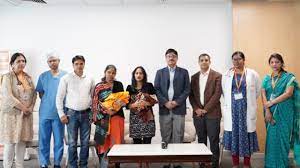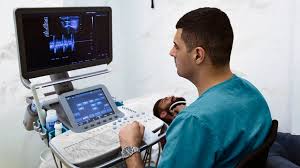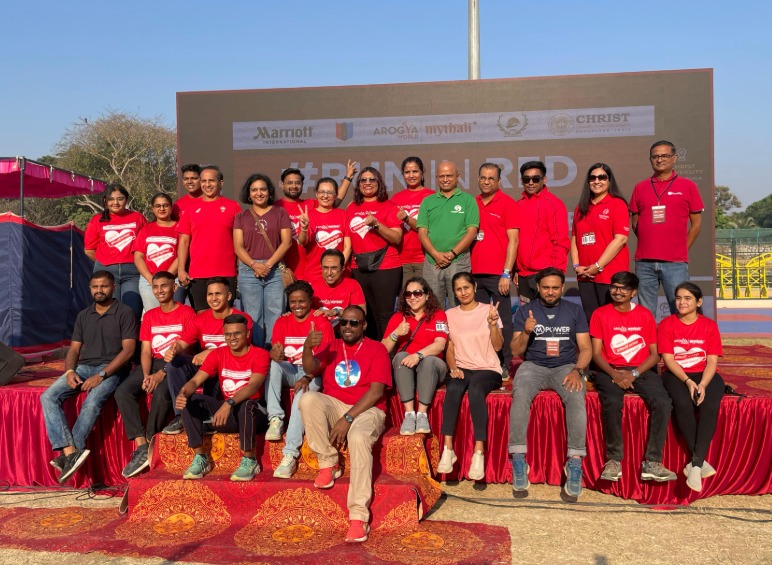Amrita Hospital doctors perform dialysis on newborn girl with severe kidney injury
Severe acute kidney injury requiring dialysis in a newborn is extremely rare Dialysis of babies only a few days old is rarely done anywhere in the world and success rate is extremely low This

- Severe acute kidney injury requiring dialysis in a newborn is extremely rare
- Dialysis of babies only a few days old is rarely done anywhere in the world and success rate is extremely low
- This case is among the very few ones of its kind seen in India
An underweight, six-day-old baby girl weighing just 1.34 kg was not passing urine since birth. The child, who lost her father to dengue while she was in the womb, was rushed to Amrita Hospital in Faridabad by the worried mother, where the doctors diagnosed her with severe acute kidney injury, also known as acute renal failure. To save the child, they decided to undertake a procedure that is rarely ever done for newborn babies – dialysis.
Said Dr. Hemant Sharma, Consultant, Dept. of Neonatology, Amrita Hospital, Faridabad: Acute kidney injury is common among young babies in NICU, with almost 10-20% of them suffering from it. However, severe acute kidney injury that requires dialysis is extremely rare. Dialysis of such small babies is rarely done anywhere in the world and success rate is extremely low.”
The doctors performed peritoneal dialysis on the baby girl. Said Dr. Urmila Anandh, Head, Dept. of Nephrology, Amrita Hospital, Faridabad: “Kidneys are necessary to remove waste from the body. However, if they cease function for some reason, such as prenatal damage, the blood becomes clogged with waste. This interferes with the baby’s ability to eat and causes lethargy, bleeding, and swelling of the body. It can also affect other organs such as the brain, heart, and lungs.”
Dr. Hemant Sharma added: “In the case of newborn baby girl, her kidney function was severely damaged. We decided to use peritoneal dialysis to clean the waste from her body. A cleansing solution was slowly injected into her belly and then washed out, bringing the waste out of the body with it. Several in-and-out fluid cycles were conducted, spread across nine days till her kidneys got time to heal. The procedure was successful. This was very few such cases in India of dialysis being performed on a newborn. We opted for peritoneal dialysis instead of hemodialysis because the latter is generally not performed on such small children.
Said Dr. Hemant Sharma: “Dialysis in such as small child is not only technically difficult, but also associated with high rates of complications. The procedure is usually performed on children with at least 10 kg of body weight. The baby in this case had low nephron reserve. There was also a high risk of infection of her abdominal lining. Despite this challenge we maintained strict asepsis and did not use any higher antibiotics. The procedure was successful, and the baby is totally healthy now. She is being breast fed by the mother now and has gained weight. Her kidney functions are almost back to normal, and she is passing urine normally. She is now expected to grow up normally like any other healthy newborn.
Said the baby girl’s mother: “She is a very precious child for me, since I lost my husband due to dengue when I was pregnant. I was devastated when I realized that there is something wrong with my daughter, as she was not passing urine since the day of her birth. I thank the doctors of Amrita Hospital from the bottom of my heart for doing this difficult procedure on my newborn child and saving her life.”






